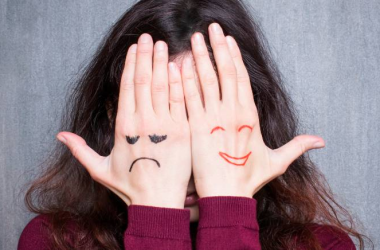To say we’re in the midst of a mental health crisis is not an exaggeration. Mental health concerns have been increasing for years and have only been amplified by the COVID-19 crisis and national lockdowns. Over half of UK adults said their mental health got worse as a result of the March 2020 restrictions. The Centre for Mental Health has further predicted 10 million additional people will need mental health support in the coming months.
We know that there is a clear gender split when it comes to reported mental health problems. It’s estimated that one in five women have a mental health condition compared to one in eight men. However, we also know that men are less likely to seek help and therefore are diagnosed less often, with fatal consequences. Suicide is the leading cause of death in men aged 20–49 in the UK. Furthermore, inequality has an impact: men from deprived backgrounds are 10 times more likely to die by suicide than affluent men.
The stigma of mental health problems amongst men
Gender stereotypes and societal expectations play a large role in men not seeking help for mental health conditions. The “stiff upper lip” approach means men are told from a young age that they should be tough and that sharing their emotions is a sign of weakness. Globally recognised comedian Wayne Brady said: “It’s difficult for men in general, I think, because of just the way that we’re raised… We feel any of the negative emotions or that dark cloud settle on you, and you feel like you need to cry out or speak to someone about it, and, ‘Nope, I’m not gonna do that, because I’m a man.’
“What kind of man would I sound like if I told somebody, ‘Hey, I am so sad. I’m cripplingly sad. I can’t get out of bed. I just feel empty. Help me’… I’d be [seen as] some sissy. I’d be soft. That’s what you’re taught. That’s how you were programmed. And that’s what kills us.”
The implications of this stigma are clear. Men are significantly less likely to seek support for mental health problems, only accounting for 36 per cent of referrals to NHS talking therapies. As a result, men are three times more likely to die by suicide than women.
On a positive note, men’s mental health is receiving more attention and the stigma is being addressed. International Men’s Day 2020 focused on raising awareness of the mental health crisis among men, with the aim of destigmatising the subject. A number of mental health charities, including Mind and Mental Health Foundation, host awareness months and offer specific advice to men suffering from mental health conditions. Furthermore, funds raised from Movember contribute to mental health support for men.
Capital FM DJ Roman Kemp aims to raise awareness of men’s mental health with his BBC documentary, Roman Kemp: Our Silent Emergency, available from 16th March 2021. The host discusses his own struggles with depression and the tragic loss of his best friend to suicide.
How technology is helping us support mental health conditions
While attitudes towards mental health are improving, it’s clear that there still exists a stigma, particularly when it comes to men seeking help. This, coupled with record waiting lists for NHS treatment, can further deter people from referring themselves to mental health services. Could the solution to this lie in digital?
Digital mental health diagnoses and referrals
During the first national lockdown, many GP surgeries made the switch to remote appointments carried out over the phone or video chat. While this has been successful in most areas, the chair of the Royal College of General Practitioners cautioned that these digital GP appointments may make diagnosing mental health problems “difficult”. There are concerns this change to GP appointments could result in a medical misdiagnosis, which results in patients not receiving the correct treatment.
In most areas of the UK, patients are able to self-refer to an NHS psychological therapies service online. This eliminates the requirement of speaking to your GP in order to receive a referral, which may have deterred men from referring in the past. This online self-referral is helpful for men who don’t feel comfortable asking for support due to the stigma associated with it. Services are based on the patient’s location, and they can detail why they are referring in a no-pressure, private environment.
It’s now standard practice for self-referral forms to include standardised patient health questionnaires that score users on a scale for anxiety, low mood, and phobias. This helps both the patient and the practitioners initially diagnose the most prevalent mental health problem(s) the patient is struggling with, as well as understanding the patient’s current frame of mind and condition.
Digital mental health therapies and treatments
Digital access to mental health services on the NHS has increased in recent years. The health service currently offers self-guided help as one option for patients who refer to its services. This is perfect for those who don’t feel ready to speak to someone about their mental health struggles. It allows the patient to explore the treatment themselves via tutorials, modules, and supporting materials.
The NHS also offers e-therapy in the form of online cognitive behavioural therapy (iCBT), which is a digital version of in-person CBT. This works in a similar way to face-to-face therapy, with one-to-one sessions with a therapist delivered online. This also includes elements of the self-help therapy, with users completing exercises set by their therapist, receiving feedback on their progress, and access to their therapists via messaging.
For those who want to explore more informal or completely anonymous options, the NHS recommends a number of third-party mental health apps through its apps library. Apps like BlueIce and Catch It address specific issues including the urge to self-harm and negative thoughts. Meanwhile, ieso allows users to take part in CBT sessions by confidentially texting therapists. These apps can be fantastic options for those who would like to anonymously explore mental health support and find out more about their conditions before speaking to a medical professional.
All of these digital options remove a lot of the pressure on the end user. This means men who aren’t comfortable with talking about their mental health problems due to societal pressures may feel more relaxed about taking part in these therapies.
While there’s little evidence to suggest men and women experience mental health problems differently, there is a gender gap when it comes to the diagnosis and treatment of mental health conditions. A lot of this stems from outdated gender stereotypes and the continued societal pressure on men to not open up about their emotions. These expectations must be addressed in order for men to seek the necessary help for their conditions, because the consequences of not receiving support are deadly. Digital services offer a low-pressure environment for men to not only seek a diagnosis for their mental health condition but also support and therapy. This is a start, but to truly change the mental health landscape for men, we need to remove the stigma.
Sources
https://www.ft.com/content/88c8f248-acde-42cb-bc2a-bb9a95c031d9
https://www.bbc.co.uk/news/av/health-50666862
https://www.mentalhealth.org.uk/a-to-z/m/men-and-mental-health
https://www.mind.org.uk/media-a/5929/the-mental-health-emergency_a4_final.pdf?
https://www.ft.com/content/88c8f248-acde-42cb-bc2a-bb9a95c031d9
https://www.mentalhealth.org.uk/a-to-z/d/digital-mental-health
https://headsupguys.org/20-male-celebrities-speaking-depression/
https://www.independent.co.uk/life-style/international-mens-day-date-mental-health-b1740314.html
https://www.mind.org.uk/information-support/your-stories/man-up-getting-more-men-in-mental-health/
https://uk.movember.com/about/mental-health










